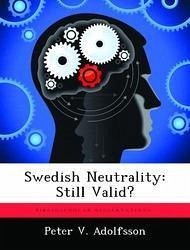A complete new set of challenges for Swedish security policy has been created by the fall of the Berlin Wall, the crisis in the former Yugoslavia, and Swedish membership in the European Union (EU), as well as in a number of other security policy organizations in Europe. The lack of a stable bipolar situation in Europe, combined with aspirations within the EU to move into the area of common security and foreign policy, provides the basis for the monograph to pose the question as to whether Sweden's official policy of non-alignment in peace aiming at neutrality in war is still credible. The monograph initially describes the European Union, the Western European Union, the Partnership for Peace, and the Organization for Security and Cooperation in Europe, as well as Swedish participation in them. Further discussion describes the concepts of non-alignment and neutrality and how those notions have been developed and formulated in Swedish security policy. The monograph concludes that the concept of non-alignment has little relevance in the 2001 European security environment. The situation is due to the lack of credible threat of major armed conflict, to the increased integration of Sweden into Europen affairs mainly through membership in the European Union, and finally to the recent dramatic reduction of Swedish military assets. The main sources of information for the monograph have been official documentation from the featured organizations, official Swedish government documentation, and contemporary Swedish and international press.
Hinweis: Dieser Artikel kann nur an eine deutsche Lieferadresse ausgeliefert werden.
Hinweis: Dieser Artikel kann nur an eine deutsche Lieferadresse ausgeliefert werden.








